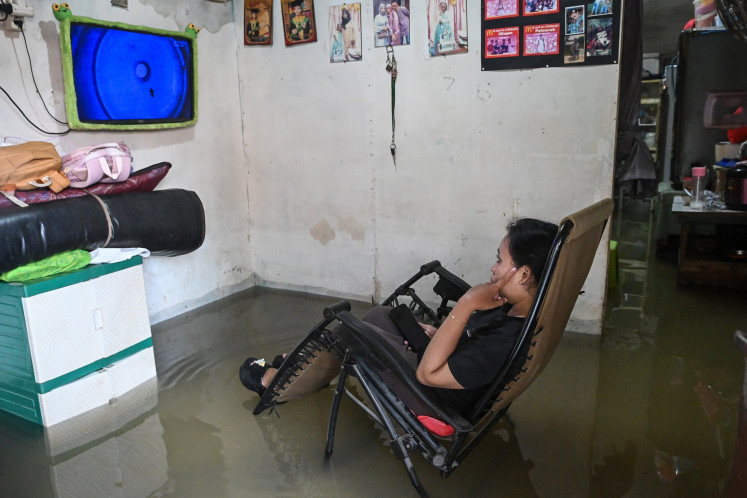Popular Reads
Top Results
Can't find what you're looking for?
View all search resultsPopular Reads
Top Results
Can't find what you're looking for?
View all search resultsGovernment struggles to cope with suicide rates
In Indonesia, people who commit suicide are remembered as criminals and remain only as statistical relics at local police stations
Change text size
Gift Premium Articles
to Anyone
I
n Indonesia, people who commit suicide are remembered as criminals and remain only as statistical relics at local police stations. Despite being a criminal act, suicide remains a common occurrence and frequent news maker. In turn, suicide rate data is difficult to obtain and thus act upon.
The Health Ministry has been working to curb suicides in Indonesia, but has failed to realize positive results.
“The latest WHO report on Indonesian suicides was estimated from data found in police reports from 2001,” said Irmansyah, the ministry’s director for mental health.
According World Health Organization (WHO) data, Indonesia’s suicide rate reached 1.6 to 1.8 people for every 100,000 people in 2001.
While the average number of suicide cases in Indonesia is still lower than other countries, some recording 10 per 100,000 people, Irmansyah was convinced the suicide rate was higher than what was reported.
The ministry’s latest effort to curb suicides is a help line (021 500454) that provides counseling for people calling from all over Indonesia. The service receives between 50 and 90 phone calls a day.
Although the number of calls is considered low, the 10 hotline volunteers who work in three shifts found the work overwhelming.
Irmansyah said the number of volunteers would be increased so that the service could not only receive dozens of calls in one day, but at the same time. He said his office was currently training more volunteers to create a crisis center network across the country.
“We want to tackle suicide cases by the level of public health centers [puskesmas]. We also set up life-skills programs for teenagers so that they can have good social skills and self esteem,” he said.
Irmansyah added that suicidal urges could be triggered by several factors, such as economics, disease or genetic predisposition. He believed psychological factors played a dominant role in Indonesia’s suicide cases.
The psychological disorders that trigger suicide include depression and schizophrenic or impulsive behavior.
The news media also presented suicide as a common thing, and in fact some people have imitated suicides after seeing suicide details in the media, he said.
Another factor is culture, especially in Gunungkidul, Yogyakarta, home of the phenomenon of pulung gantung (hanging light sign).
That local legend says that if a mysterious light falls on a home, the homeowners will soon commit suicide by hanging.
Gunungkidul has the highest suicide rate in Indonesia, with 4.48 per 100,000 people. In 2006, Gunungkidul had a population of 720,465 and recorded 32.4 suicide cases.
Coordinating Minister for the People’s Welfare Agung Laksono expressed concern about the suicides in the country. Agung said preventative measures should be taken, as experts believed most suicides could be prevented.
“The rest, about 20 percent of the cases, cannot be prevented due to severe mental disorders or very strong intentions to end one’s life,” he said in a press statement. He said he was aware some of the cases were triggered by economic problems.
Poverty is indeed a possible suicide trigger, said Agung, a medical school graduate. In those cases, family support is vital to help suicidal people.
As of 2010, the government said Indonesia’s poor accounted for 13.3 percent of the population, or 31 million people.
However, Agung said financial problems were not the only culprit.
“Innate feelings of helplessness can also drive people to become suicidal,” he said.










